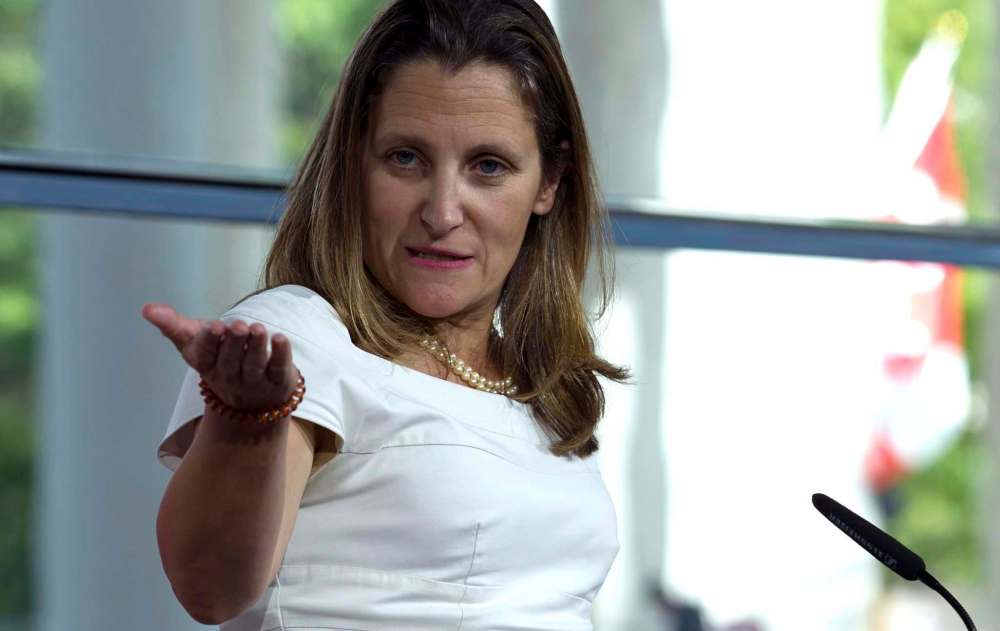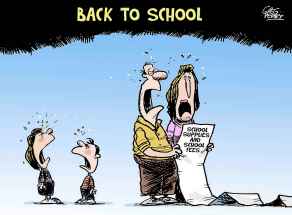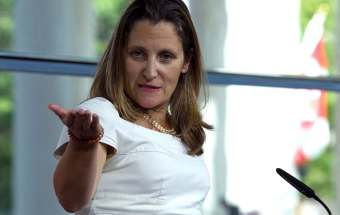Despite Donald Trump’s threats, no rush on NAFTA
Read this article for free:
or
Already have an account? Log in here »
To continue reading, please subscribe:
Monthly Digital Subscription
$0 for the first 4 weeks*
- Enjoy unlimited reading on winnipegfreepress.com
- Read the E-Edition, our digital replica newspaper
- Access News Break, our award-winning app
- Play interactive puzzles
*No charge for 4 weeks then price increases to the regular rate of $19.00 plus GST every four weeks. Offer available to new and qualified returning subscribers only. Cancel any time.
Monthly Digital Subscription
$4.75/week*
- Enjoy unlimited reading on winnipegfreepress.com
- Read the E-Edition, our digital replica newspaper
- Access News Break, our award-winning app
- Play interactive puzzles
*Billed as $19 plus GST every four weeks. Cancel any time.
To continue reading, please subscribe:
Add Free Press access to your Brandon Sun subscription for only an additional
$1 for the first 4 weeks*
*Your next subscription payment will increase by $1.00 and you will be charged $16.99 plus GST for four weeks. After four weeks, your payment will increase to $23.99 plus GST every four weeks.
Read unlimited articles for free today:
or
Already have an account? Log in here »
Hey there, time traveller!
This article was published 04/09/2018 (2656 days ago), so information in it may no longer be current.
Foreign Affairs Minister Chrystia Freeland need not be in any hurry to conclude a new trade deal with the United States and Mexico, despite the fulminations of U.S. President Donald Trump. His increasingly shrill cries reflect his political isolation as trade negotiations resume today.
Mr. Trump’s tweets during the Labour Day weekend attacked labour federation head Richard Trumka for saying the new trade treaty should include Canada. He also repeated an old threat to terminate the three-way trade treaty if Congress interferes to support Canada. Democrats, farm bodies and the U.S. Chamber of Commerce already opposed his attempts to coerce Canada. Now the labour movement and congressional Republicans are also lining up against him. Hence the angry lashing out.
This suggests that the president is increasingly desperate to reach a deal with Canada. He has sent a notice to Congress saying he wants to conclude a bilateral deal with Mexico before the newly-elected Mexican president Andrés Manuel López Obrador takes office on Dec. 1. Since Mr. López Obrador supports what has been agreed to so far, that seems like a fake deadline — another one.

Mr. Trump may want to have an early agreement in time for the Nov. 6 U.S. midterm elections, when his Republican party risks losing its majority in the House of Representatives and possibly losing a seat or two in the Senate. If he really is as desperate as he seems, this might be a good moment to strike a deal with him. He is in no position to refuse any reasonable offer.
The way to find out is to continue bargaining, slightly sweeten the current offer and see if he takes it. No harm is done if he still refuses. The present trade treaty and its implementing legislation continue in force until the three governments and the U.S. Congress change them.
Mr. Trump’s threats to block auto-parts trade in order to punish Canada are unlikely to be carried out — he has done nothing in that direction for fear of massively disrupting a leading U.S. industry.
Much may be gained by delay. Midterm elections usually weaken a sitting president. Special election results and recent polls suggest a large swing to the Democrats. Mr. Trump’s clout in his own party will be weakened already if his party fares poorly on Nov. 6. His clout in Congress will suffer still further, in that case, when the new Congress takes office Jan. 3.
We should not visibly stall or dawdle or delay, but we can quite legitimately take all the time complex and ambitious trade negotiations should rightfully take.
In these circumstances, Canada can hope to make a better trade deal after Nov. 6 and a still better one after Jan. 6. We should not visibly stall or dawdle or delay, but we can quite legitimately take all the time complex and ambitious trade negotiations should rightfully take.
Our U.S. and Mexican partners already played a dirty trick on us by holding two months of bilateral talks supposedly about bilateral issues. Those talks somehow broadened to cover, in Canada’s absence, issues such as the renewal provisions and dispute settlement, which are of equal concern to all the parties. Canada probably suffered no significant damage, but our partners gave us a grievance to complain about, if it ever becomes useful to do so.
So the Canadian negotiators and government they represent should be alert for an attractive offer reflecting Mr. Trump’s eagerness to make a deal, but they should be quite prepared to play out the clock and try again next year.









